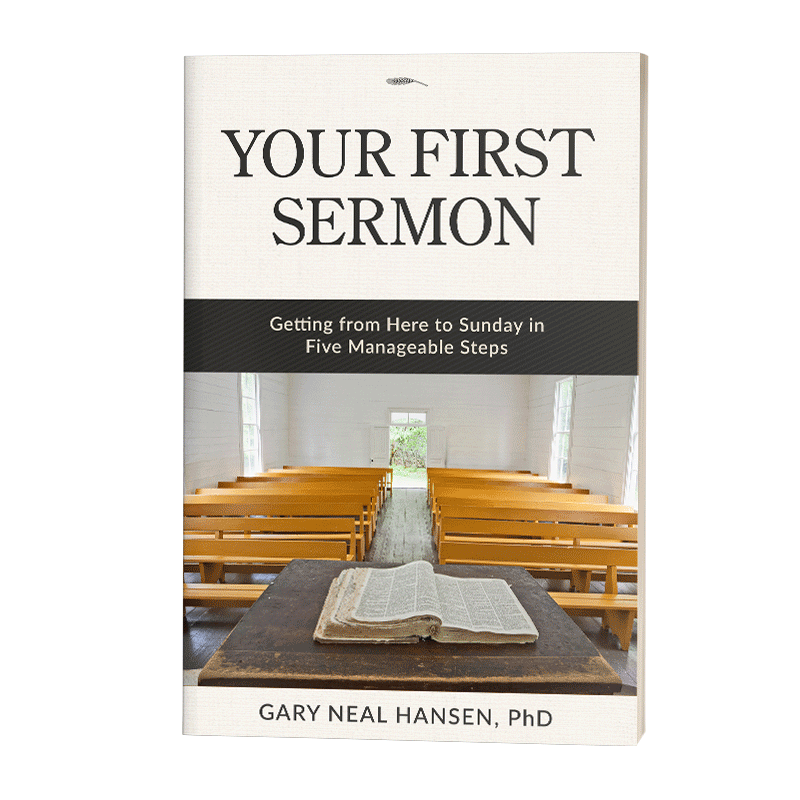
The Gospel text for the 5th Sunday of Lent is John 12:20-33, when some Greeks show up and say “We want to see Jesus.” It is a fascinating story, with surprising twists and turns, each of which merits meditation.
“Unless a grain of wheat falls into the earth and dies…”
The moment that always sticks out to me is right in the middle. In context it sounds like a non-sequitur: Andrew and Philip are bringing some Greeks to meet Jesus and as soon as they come he starts in on one of the teaching times so typical of John’s Gospel:
Very truly, I tell you,
unless a grain of wheat falls into the earth and dies,
it remains just a single grain;
but if it dies,
it bears much fruit.”John 12:24 NRSV
However, the reason this looms large for me has nothing to do with the context. It throws me back to high school memories.
I was newly blossoming in faith, and a friend had gotten me involved in a thriving Pentecostal church. It was The Place To Be for Christian kids on Saturday nights, for a cool worship service and engaging Bible teaching. It was altogether a breath of fresh air.
My friend’s whole family went to that church, and he got me involved in his early Sunday morning small group Bible study. There were maybe four of five kids and a very sincere and kind grown up leader. I’m pretty sure there were always donuts.
I was excited to dig more deeply into the Bible. I’d read the New Testament and knew I wanted to follow Jesus. I wanted to up my game.
One Sunday morning we were in this passage.
I had a question about the text:
But when a seed is put in the ground, it doesn’t actually DIE, does it?
The very kind and committed adult leader looked a bit shocked.
Well, you know who said it, don’t you?
And that was supposed to settle my question. If Jesus said the seed dies, then that simply had to be true.
Even if it wasn’t.
What Jesus said was true. But he wasn’t making a scientific point about botany. He was using what appeared to happen to the seed as a metaphor. He was talking about losing our lives for his sake and finding real life.
I always look back to that as the moment I knew I couldn’t be a fundamentalist.
“Some Greeks”
Anyway, the more interesting stuff in the text is before and after that little nugget.
The opener is great: “some Greeks” come to Andrew and say, “Sir, we wish to see Jesus.”
Whenever I read the story I think of how it shows Jesus’ ministry spreading beyond the borders of Israel. Like when the Magi from the East sought the infant in Bethlehem, here somehow the Spirit has nudged these Greeks to seek Jesus. Since that movement of the gospel and the Spirit out into the world is what brought me, and probably you, into the faith, that’s a great little moment.
But check out the fine print. These Greeks were “among those who went up to worship at the festival.” They were already drawn to the God of Israel. They already worshipped. They went on pilgrimage to worship at a Jewish festival.
So maybe once they got to Jerusalem they heard about Jesus and all he’d been doing. They ask to see him. That’s still the Spirit at work.
But maybe we should notice that it was a short leap. They weren’t going straight from devotion to the gods of Greek mythology to pursuit of the Jewish Messiah. We meet them when they are well along in their spiritual journey.
God has been doing things we’ll never know of to draw them in, to win them over, to make them ready.
And maybe there is wisdom for us there. Everyone we meet is someone God has already been working with, drawing them along, calling out to them. The Good News we may have opportunity to share is not the first true thing they’ve ever heard about God.
(If you want a great illustration of this, read Augustine’s Confessions. That great 5th century bishop explores his past, from infancy to adulthood, finding the traces of God at work leading him to faith and discipleship, at every turn of his life. I’m currently doing a video series for people reading the Confessions over on my Patreon page. If you’re interested in an online book group, check it out.)
“We wish to see Jesus”
But whatever their place in the journey toward faith, their request is something today’s Christians would do well to keep in mind.
They want to see Jesus.
They don’t want a theological discourse — even if that’s kind of what Jesus gave them when they did see him.
I think they put into words what every non-Christian needs, whether they consciously want it or not. And when non-Christians encounter a follower of Jesus, the Christian would be smart to try to meet that exact need: Show them Jesus.
That might mean sincere caring. It might be welcoming someone who wouldn’t feel welcome inside a church. It might mean tending to someone’s tangible needs.
Or it might just mean being exactly who you are. After all, you are on the journey of transformation into Christ’s image.
But one way or another, show them Jesus. That’s a better invitation to the Kingdom than an argument or a well-rehearsed spiel.
“The hour has come for the Son of Man to be glorified.”
As I said, Jesus’ response to these Greeks seems a little off-topic. He ends up diving in about their losing their lives for him.
But it is possible to read his initial response as an exact diagnosis of the situation.
Jesus finds people wanting to know him better.
Jesus responds that “The hour has come for the Son of Man to be glorified.”
Maybe the glory of God shines most brightly when someone comes to know Jesus face to face.
This was, as he says at the end of his discourse, why he came into the world. This is the giving of his life — both here, face to face with disciples and strangers, and in the end, on the Cross.
“A voice came from heaven”
After Jesus has said all this a very odd thing happens. He calls out to God to glorify him, and God answers:
Then a voice came from heaven,
‘I have glorified it, and I will glorify it again.’John 12:28 NRSV
So here we have a “theophany,” a moment of revelation. It happened before at Jesus’ baptism. It happened on the mount of transfiguration. And it happens in the end, as Jesus is on the Cross.
But here it seems almost at random: Jesus is chatting with some new acquaintances, and God speaks from heaven.
Maybe there’s something to ponder: When people are face to face with Jesus, seeking to see him and listen to him, God’s voice speaks from heaven.
Maybe it’s always like that.
But we can’t see it.
They couldn’t see it then either. Some thought it was a peal of thunder. Some thought maybe an angel. But Jesus knew, and so did John.
God spoke from heaven and most everybody missed it.
I suspect it happens all the time.
++++++++++++
Preaching this text? If you want a refreshing take on making your sermon both biblical and useful to the people who listen, check out my book Your First Sermon: Getting from Here to Sunday in Five Manageable Steps.
Amazon reviewers consistently say it has great input for seasoned preachers as well as first-timers. Click the affiliate link to check it out on Amazon.

(This post contains affiliate links.)

Hi, Gary.
As to the seed . . .
Could it be that Jesus is telling us something about death, maybe redefining it for us? Death as transformation?
April
Thanks April.
It does seem that the theme of death is actively in the conversation.
I tend to think he was being simply descriptive. You look at a seed prior to planting and it seems dry and dead. You bury it in the ground — as you do with people’s genuinely dead bodies. And you can only get a crop if you bury that deed-looking seed and wait for it to grow. And so with our lives. Unless we sort of die (in some passages that’s taking up the cross, in others it’s losing our lives for his sake, and here it is ‘hating’ our own lives by serving him instead) then good stuff sprouts up in and through us. Life!
Blessings,
Gary
Thanks Gary for the insightful reflection,
i believe that Jesus mission on earth is to draw all men to God, he didn’t come for only the Jews. however this mission will only be accomplished through his death. his ministry will bear much fruits through his cross. i think that is the clear example of a seed dying first in other to bear much fruits.
Thanks, EEA. Hope you’ll stop by again soon.
Blessings,
Gary